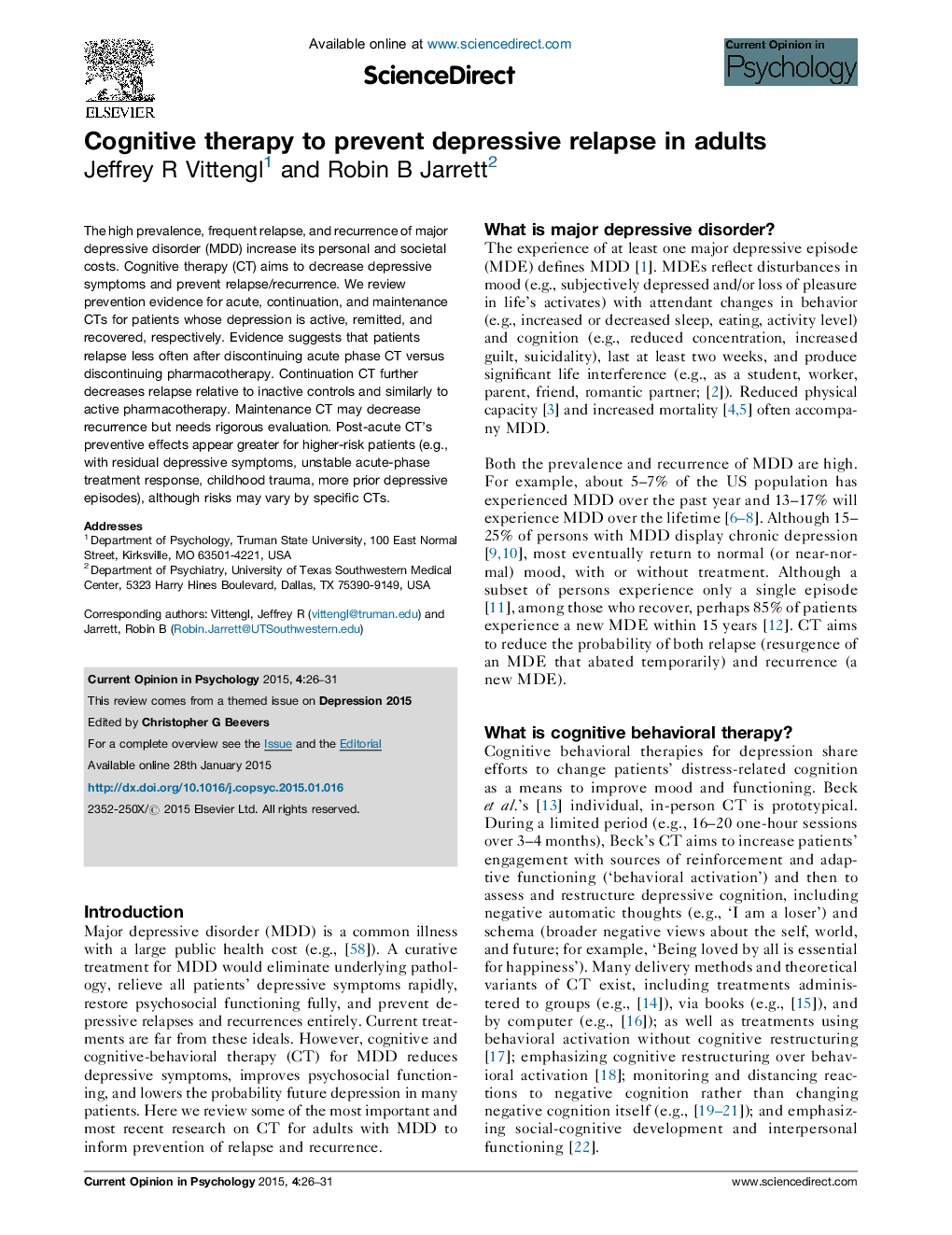| Article ID | Journal | Published Year | Pages | File Type |
|---|---|---|---|---|
| 879502 | Current Opinion in Psychology | 2015 | 6 Pages |
•Several cognitive therapies reduce relapse compared to no additional treatment.•Patients relapse less after acute phase cognitive therapy versus after medication.•After acute symptom reduction, cognitive therapy can be used to prevent relapse.•We review prevention evidence for acute, continuation, and maintenance therapies.•Relapse-prevention appears greater for higher-risk patient populations.
The high prevalence, frequent relapse, and recurrence of major depressive disorder (MDD) increase its personal and societal costs. Cognitive therapy (CT) aims to decrease depressive symptoms and prevent relapse/recurrence. We review prevention evidence for acute, continuation, and maintenance CTs for patients whose depression is active, remitted, and recovered, respectively. Evidence suggests that patients relapse less often after discontinuing acute phase CT versus discontinuing pharmacotherapy. Continuation CT further decreases relapse relative to inactive controls and similarly to active pharmacotherapy. Maintenance CT may decrease recurrence but needs rigorous evaluation. Post-acute CT's preventive effects appear greater for higher-risk patients (e.g., with residual depressive symptoms, unstable acute-phase treatment response, childhood trauma, more prior depressive episodes), although risks may vary by specific CTs.
